You can access the internet on your smartphone using either a 2G, 3G, 4G or 5G connection. Find out how download speeds compare.
 When it comes to mobile internet download speeds, terms like 2G, 3G, 4G and 5G are often used. Referring to four different generations of mobile technology, each of them gives a very different download speed.
When it comes to mobile internet download speeds, terms like 2G, 3G, 4G and 5G are often used. Referring to four different generations of mobile technology, each of them gives a very different download speed.
Older 2G connections give a download speed of around 0.1Mbit/s, with this rising to around 8Mbit/s on the most advanced 3G networks. Speeds of around 60Mbit/s are available on 4G mobile networks in the UK (but this can be substantially higher in other countries like the US). Next-generation 5G mobile networks are targeting a download speed of over 1,000Mbit/s (1Gbit/s).
In this article, we take an in-depth look into the topic of download speeds and see how 2G, 3G, 4G and 5G mobile networks compare. We’ll also consider the real-world speeds and how they’ll impact upon your actual day-to-day usage.
Contents
What is Download Speed?
 The “download speed” is a measure of the rate at which data can be transferred from the internet to your smartphone. This data might be a web page or a photo you’re viewing, or it could be an application or video you’re downloading to your smartphone.
The “download speed” is a measure of the rate at which data can be transferred from the internet to your smartphone. This data might be a web page or a photo you’re viewing, or it could be an application or video you’re downloading to your smartphone.
In its rawest form, download speeds are measured in “bits per second” (bps) where a “bit” is a one or zero in binary. More commonly, however, we talk about download speeds in “megabits per second” (Mbit/s), where 1 Megabit is equal to 1,000,000 bits.
In general, a faster download speed normally mean that content from the internet loads faster and with less of a wait. A faster download speed also supports higher-quality streaming (e.g. you might be able to watch higher definition video as it downloads without encountering buffering). Download speeds aren’t the full picture however: there is also the related concept of latency (discussed below) that affects the responsiveness of your internet.
2G, 3G, 4G & 5G Download Speeds
The following table shows a comparison of download speeds on various flavours of 2G, 3G, 4G and 5G mobile networks. The icon column refers to what you’ll most likely see in the notification bar of your smartphone when using one of these networks.
| Generation | Icon | Technology | Maximum Download Speed | Typical Download Speed |
|---|---|---|---|---|
| 2G |
G
|
GPRS | 0.1Mbit/s | <0.1Mbit/s |
|
E
|
EDGE | 0.3Mbit/s | 0.1Mbit/s | |
| 3G |
3G
|
3G (Basic) | 0.3Mbit/s | 0.1Mbit/s |
|
H
|
HSPA | 7.2Mbit/s | 1.5Mbit/s | |
|
H+
|
HSPA+ | 21Mbit/s | 4Mbit/s | |
|
H+
|
DC-HSPA+ | 42Mbit/s | 8Mbit/s | |
| 4G |
4G
|
LTE Category 4 | 150Mbit/s | 15Mbit/s |
| 4G+ |
4G+
|
LTE-Advanced Cat6 | 300Mbit/s | 30Mbit/s |
|
4G+
|
LTE-Advanced Cat9 | 450Mbit/s | 45Mbit/s | |
|
4G+
|
LTE-Advanced Cat12 | 600Mbit/s | 60Mbit/s | |
|
4G+
|
LTE-Advanced Cat16 | 979Mbit/s | 90Mbit/s | |
| 5G |
5G
|
5G | 1,000-10,000Mbit/s (1-10Gbit/s) |
150-200Mbit/s |
Our table provides two different download speeds. The first is the theoretical “maximum download speed”. This is based on the limits of the technology, assuming you had perfect coverage and no congestion on the masts. We’ve also listed a more “typical download speed” which is more representative of what you’d actually experience on a day-to-day basis.
The actual download speeds you get will depend on a number of factors such as your location, whether you are indoors or outdoors, the distance to nearby masts and the amount of congestion on them. You can measure the actual download speed of your connection using tools like Google’s Speed Test, Netflix’s Fast.com or Ookla’s SpeedTest.net.
Which Technologies Can I Access?
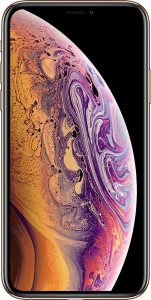
In order to access a certain technology, you’ll need both a mobile phone and a mobile network that supports it. For instance, if you wanted to access Category 6 LTE-Advanced, you’ll need a mobile phone that supports it and a mobile network that has coverage in your area.
Most modern smartphones now support 4G technology, but they often differ in the maximum download speeds supported, or the maximum “category” of LTE they support. Some of the latest flagship smartphones like the iPhone XS and Galaxy S9 now support up to Category 16 LTE-Advanced.
Mobile networks will also differ in terms of the maximum download speeds and coverage they offer. In the UK, it’s possible to get up to Category 9 speeds on EE and Vodafone (up to 450Mbit/s), and up to Category 6 speeds on O2 and Three (up to 300Mbit/s) at the time of writing. In other countries, however, it often looks quite different. For instance, in the United States, it’s possible to get up to Category 16 speeds (up to 979Mbit/s) on all of the major mobile networks including AT&T, Sprint, T-Mobile and Verizon.
Impact on Download Times & Streaming
The following table shows how expected download times compare across the different technologies:
| Activity | 4G Download Time | 3G Download Time | 2G Download Time |
|---|---|---|---|
| Accessing typical web page | 0.5 seconds | 4 seconds | 3 minutes |
| Sending an e-mail without attachments | <0.1 seconds | <0.1 seconds | 1 second |
| Downloading high-quality photograph | 0.5 seconds | 4 seconds | 3 minutes |
| Downloading an music track (MP3) | 3 seconds | 10 seconds | 7 minutes |
| Downloading an application | 8 seconds | 1 minute | 40 minutes |
For this comparison table, we have used the average download speeds of 30Mbit/s (4G LTE Cat6), 4Mbit/s (3G HSPA+) and 0.1Mbit/s (2G EDGE). Typical file sizes used in our calculations: 2MB for a webpage, 10KB for a basic e-mail, 2MB for a high-quality photograph, 5MB for a music track and 30MB for a typical application download.
We haven’t listed 5G download times in the table above but it’s safe to say they would all download near instantaneously!
Streaming Applications

When it comes to certain applications that “stream” data, your connection will need to support a minimum download speed. This is because content from the internet is being shown on your phone at the same time as whilst you’re downloading it (a concept commonly known as “streaming”). If the content can’t be downloaded at a sufficient speed, you’ll experience pauses during playback (also known as “buffering”).
Applications that make use of streaming include voice over IP (e.g. calling via Skype or WhatsApp), online video apps (e.g. Netflix and YouTube) and online radio. The following table shows minimum download speeds you would require for this content to play smoothly without buffering:
| Activity | Required Download Speed |
|---|---|
| Skype/WhatsApp phone call | 0.1Mbit/s |
| Skype video call | 0.5Mbit/s |
| Skype video call (HD) | 1.5Mbit/s |
| Listening to online radio | 0.2Mbit/s |
| Watching YouTube videos (basic quality) | 0.5Mbit/s |
| Watching YouTube videos (720p HD quality) | 2.5Mbit/s |
| Watching YouTube videos (1080p HD quality) | 4Mbit/s |
| Watching iPlayer/Netflix (standard definition) | 1.5Mbit/s |
| Watching iPlayer/Netflix (high definition) | 5Mbit/s |
| Watching iPlayer/Netflix (4K UHD) | 25Mbit/s |
A 3G connection or better should normally be able to sustain most of these activities. Having a faster 4G connection may also allow you to stream higher quality content (e.g. watching Netflix in 4K Ultra HD quality).
Latency
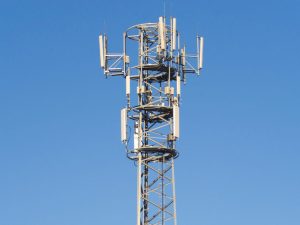 Besides download speed, latency is another really important concept that affects the experience you’ll get on your smartphone. It’s also known as the “lag” or “ping” if you’re familiar with online gaming.
Besides download speed, latency is another really important concept that affects the experience you’ll get on your smartphone. It’s also known as the “lag” or “ping” if you’re familiar with online gaming.
When your mobile phone wants to download some content from the internet, there is an initial delay before the server on the other end starts to respond. Only once the server has responded, it will then be possible for the download to progress. For example, if it takes 0.5 seconds for the server to initially respond and then 1 second for the file to download, you’ll need to wait a total of 1.5 seconds for the download to complete.
High latency connections can cause web pages to load slowly, and can also affect the experience in applications that require real-time connectivity (e.g. voice calling, video calling and gaming applications).
Across 2G, 3G, 4G and 5G technologies, there’s a major difference in the latency you can expect:
| Generation | Typical Latency |
|---|---|
| 2G | 500ms (0.5 seconds) |
| 3G | 100ms (0.1 seconds) |
| 4G | 50ms (0.05 seconds) |
| 5G | 1ms (0.001 seconds)* |
* The target latency of a 5G connection is 1ms (theoretical). Other figures are based on real-world usage.
Many people argue that the benefits of 5G are more from having reduced latency and increased capacity rather than having faster download speeds. This is because the download speeds available on 4G are already fast enough for most uses (e.g. 5Mbit/s is already more than enough for high-definition video). However, despite faster download speeds not making a huge difference here, the reduction in latency from 5G technology will help overall response time.
The reduced latency of 5G technology is particularly important for some of the newer embedded applications of mobile technology. For instance, a connected car travelling on the motorway at 70mph (110km/h) would travel almost 2 meters in the amount of time it takes for a 4G mobile network to respond. The lower latency of a 5G connection will allow mobile technology to be used more safely in cars.
Download Speeds & Download Limits
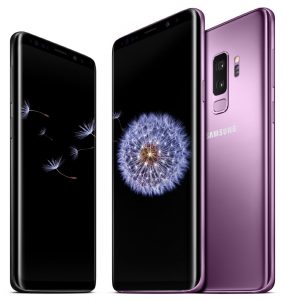 Download speeds shouldn’t directly affect how much data you consume. This is because the web pages you visit and the files you download are still the same size (and hence will consume the same amount of data) regardless of which connection type you have. There are, however, two key exceptions to this:
Download speeds shouldn’t directly affect how much data you consume. This is because the web pages you visit and the files you download are still the same size (and hence will consume the same amount of data) regardless of which connection type you have. There are, however, two key exceptions to this:
- Adaptive Streaming on Videos. Some video providers (e.g. YouTube and Netflix) automatically adjust the quality of videos depending on what your connection can handle. For instance, you might receive standard-definition video on a 3G connection and high-definition video on a 4G or 5G connection. This may increase the amount of data you consume as you move to a faster connection.
- Increased Engagement. The increased download speed and improved experience of a faster internet connection may encourage you to consume more content and to use your phone more regularly on-the-go.
For both of these reasons, we’d typically advise choosing a larger data allowance when moving to mobile network or tariff offering faster download speeds.
Terminology
Kbit/s, Mbit/s, Gbit/s
 There are 1,000 kilobits in a megabit (1000kbit = 1Mbit) and 1,000 megabits in a gigabit (1,000Mbit = 1Gbit). This means a 1Mbit/s connection is twice as fast as a 500kbit/s connection. Wikipedia has a full explanation.
There are 1,000 kilobits in a megabit (1000kbit = 1Mbit) and 1,000 megabits in a gigabit (1,000Mbit = 1Gbit). This means a 1Mbit/s connection is twice as fast as a 500kbit/s connection. Wikipedia has a full explanation.
In everyday life, it is most useful to talk about download speeds in megabits per second (Mbit/s). 2G connections are sometimes specified in kbit/s (e.g. the maximum download speed for GPRS is 80kbit/s). Similarly, 5G connections are sometimes specified in Gbit/s (e.g. the target download speed for 5G technology is 1-10Gbit/s). For ease of comparison, we have converted these measurements to be in the common unit of Mbit/s.
Mbit/s vs Mbps
There’s no difference between Mbit/s and Mbps: they’re just two different ways of abbreviating “megabits per second”. At Ken’s Tech Tips, we prefer to use the term Mbit/s as we believe it ensures a little more clarity. The alternative abbreviation, Mbps, is often confused with “megabytes per second”.
It’s important to draw the distinction between bits and bytes. Whilst download speeds are normally measured in “megabits per second” (Mbit/s), download limits and download sizes are measured in megabytes (MB). As there are 8 bits in one byte (and hence 8 megabits in one megabyte), it would actually take you 8 seconds to download a 1MB file on a 1Mbit/s connection.
5G Wi-Fi
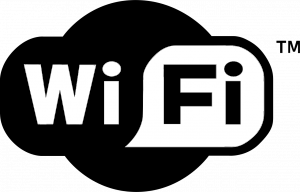 The term “5G Wi-Fi” is often confused for 5G mobile technology. In fact, the “5G” actually stands for 5GHz and relates to the frequencies used by the wi-fi network to communicate with your device (traditionally, wi-fi networks have used the spectrum around 2.4GHz).
The term “5G Wi-Fi” is often confused for 5G mobile technology. In fact, the “5G” actually stands for 5GHz and relates to the frequencies used by the wi-fi network to communicate with your device (traditionally, wi-fi networks have used the spectrum around 2.4GHz).
As the “5G” in “5G Wi-Fi” has no relation to download speeds, it’s recommended that this technology is now referred to as Wi-Fi 5 or 802.11ac to reduce confusion.
More Information
For more information, please consult your mobile network’s website for details about the download speeds and coverage they’re able to offer. If you’re in the UK, please see the EE, O2, Three and Vodafone websites.
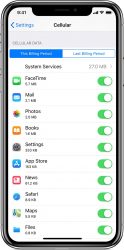



Dale said:
Can there be software installed on 4G smartphones to make it 5G?
Ken replied:
Hi Dale,
Thanks for your comment. Sadly, you’ll need 5G hardware to access 5G. It isn’t possible to access 5G through a software update.
Ken
S. N. Alexander said:
Ken, this is very clear. Well done! Thank you for the full tables with typical speeds and examples. And good answer on the EE Sim cards. I was thinking about that too. Continued success to you.
william jones said:
If you take your cell hotspot and run it into a router that you can set the TTL you can set the TTL to 64 and the cell tower will think the hotspot is a phone on the network and not a hotspot as your computers and tablets by default have a TTL of 128 so if you are going to use a hotspot on a network that only wants you to use phone data you have to set the TTL on all the devices or use a second router that you can set the TTL in this is just a work around for the picky cell comp that are not wanting to give up the data
Alex (Tech Support Engineer) said:
Wonderful article and very technically honest and accurate. Thank you for putting in the typical speeds as most ‘technical’ articles only put the theoretical maximums; extremely unlikely in everyday circumstances.
I am sharing these articles with my family so they can better understand all the technology behind their phones and devices.
George Woodhouse said:
Hi Ken, Great article and very useful. I want to use a Zyxel sim card router because (using an EE sim card) I get much faster download and upload speeds than with traditional landline broadband. There are some good deals around with companies who “piggyback” on EE – such as Utility Warehouse. They offer a sim which is unlimited for £20 per month and I believe is a monthly contract – but it specifically says not for use in a sim router. So is there one, as far as you know, that does not place this restriction on its use?
Ken replied:
Hi George,
Thanks for your comment. I’ve got an in-depth article here about using SIM cards for 4G broadband, and another one here about the terms and conditions on unlimited data SIM cards. However, in short: most networks should now allow you to use their SIM cards inside a 4G router. Arguably, Ofcom’s net neutrality regulation actually stops them from preventing the usage of SIM cards inside certain devices. However, I think 4G routers are still a bit of a grey area and so some providers still try to prohibit the usage of routers on their network.
Ken
George Woodhouse replied:
Thanks Ken, thats very helpful. It is a very complex area for something which superficially is so straightforward. I am delighted that I found your website.
I have continuous battles with mobile phone providers – all 4 of them claim to provide high quality 4G indoors and out where I live. But I often struggle to get even one bar of 3G more often than not.
Anyway thanks again. Very helpful.
Mr. Scott said:
Hey Ken,
Nice article for this “uninformed” boomer! Started learning about this stuff as the tech has changed over the years. Have to keep up. Thanks for sharing, it is appreciated.
Abner said:
Thanks for your article, Ken. I know it’s a little off topic, but why aren’t there any phones out there that can handle 4G or at least 3G without being “smart”? Does a phone need to be “smart” to handle higher speeds?! Doesn’t seems logical at face value. Thank you anyone for your input 🙂
Ken replied:
Hi Abner,
There are a couple of non-smartphones supporting 3G technology, though I’m not quite sure about 4G. There are really two reasons for this:
(1) There’s actually only a very small market for phones that aren’t “smart”. Therefore, companies don’t really bother to make them in large quantities. You can now get a smartphone at a very low price and lots of them have simplified interfaces that try to make them more easily accessible/easier to use.
(2) In most cases, 4G is a data-only technology that doesn’t support phone calls (the exception to this is if you’re using 4G Calling technology). Therefore, your handset will actually fall back to 3G when you want to make or receive a phone call (something known as CSFB). Therefore, it doesn’t really make sense for a non-smartphone to support 4G technology when you only want to use it for phone calls.
Hope this helps,
Ken
Abner replied:
Thank you. It does. I want to be able to surf the net and download at the speeds with which I am accustomed, while not having evil foockle watching everything I do. And I don’t like the rotten apple either. That’s why I asked this question. Just one small, trivial example. I can’t use Calendar on my morondroid phone without signing in my gmail account. Thanks again for your answer.
Dave Johnson said:
Interesting article, thanks. But I wish that the industry would concentrate their efforts on establishing decent internet speeds across the whole country rather then improving speeds for the lucky people who already get very good speeds.
I spend my time at 2 completely different locations (Leicestershire & Suffolk) and the I way I can get any reception is by using aerials. Even then, using Three, in both locations the absolute to speed is 4 mbs down and 1 mbs up. About 30% of the time this drops to less then 1mbs down. As I write this, the latency is over 3,000ms.
I have spoken to Three lots of times but they just read from a prepared sheet of paper and have no technical knowledge. I have tried other companies who are slightly better but don’t provide unlimited internet, which I need.
So the talk about 1gbs on 5g is not helpful to me… How about 10mbs down and up consistently with a latency of under 100ms? Is that really too much too ask?
Pete replied:
Get into the Starlink program…
fivish said:
Its really worrying that cars might be 5G enabled. My car has a sim card for live updates to the sat-nav!
Autonomous cars are possible but undesirable and proven to be dangerous to life.
There is no good reason for 5G as its only at best twice as fast as 4G. It should be cancelled.
R. Adam Johnson replied:
The idea of cancelling 5G simply because its only twices as good as 4G is an idiotic thought, when 3G was originally launched it was only as good as 2G in speed but it brought more uses. Then when 4G was brought in it was only as good twice as good as 3G, but overtime we altered and improved the system allowing for it to be over 10 times as good as the previous generation.
The start of a new generation of cellular networks is mainly to lower the latency and not necessarily to improve the bandwidth.
Overtime as we improve 5G software and hardware it could become another 10 times faster meaning you could theoretically download 200MB in a second.
Furthermore a sim card in a car doesn’t mean that the company is going to make autonomous cars anytime soon, and it could be used to pin point the car location if it is stolen or if you get lost and need emerency assistance.
Abner replied:
If enough of us didn’t use it, it would be. But we won’t so it won’t
Steve said:
I currently have Comcast internet at home and they just keep jacking up the price. The other major provider in my area is Fios and it is my understanding that they basically operate in the same way. It’s a pain to switch as it requires different equipment etc. and then I’d have to switch back eventually once Verison starts playing the same games. My question is: How long before we can get home internet via cell towers? (I’ve read that you can get it via satellite but that it is hampered by weather conditions. I’d love to be able to switch providers on a dime w/o the hardware fiasco.
Ken replied:
Hi Steve,
Thanks for your comment. It’s already a reality in lots of countries around the world where you can get home broadband through a 4G or 5G connection (this technology is also known as “Fixed Wireless Access”). Unfortunately, I’m not familiar enough with the US market to know whether FWA technology is planned to launch there.
Ken
Nathan replied:
You can get “Fixed Wireless Access” thru Calyx anywhere in the US as long as you are close enough to Sprint’s cell towers.
https://calyxinstitute.org/membership/internet
Cheers,
Nathan
Thormod Nordahl said:
Well done!
I was a digital comms engineer, and I have placed your Url in a shortcut on my desktop.
Not only to share with others, but sometimes, when my memory isn’t quite at home, well – you get the picture 🙂
Moriel said:
Hello, I had just read your article, and I certainly enjoyed it.
One thing that is bugging me, is your claim that 5Ghz WiFi has no relation to download speeds.
While technically correct, it is not accurate, as 5Ghz WiFi allows for more bandwidth, which in turn could theoretically allow for higher download speeds, should your plan provide such speeds.
Could you please add the word “direct” to the sentence? As in, that 5Ghz WiFi has no direct connection to download speeds.
Ian said:
To stream music, is 2G sufficient?
Ken replied:
Hi Ian,
Thanks for your comment. It’s possible that a very good 2G connection can handle a low-quality audio stream. However, in practice, I think it’s likely you’ll have a poor experience with lots of buffering, playback issues, etc. I’d definitely try to stick to streaming on at least a 3G connection if possible.
Ken
Terry Moorhead said:
Excellent. Informative. But how does congestion impact download speed. How many users can the bts support ?
Ken replied:
Hi Terry,
Great question! Yes, congestion can sometimes affect the download speeds you get. It’s most noticeable in places with a lot of people (e.g. sports stadiums, railway stations, etc). Unfortunately, there isn’t really a simple way to account for this as it depends very much on the mobile network you’re using and the location. It also depends on factors like the backhaul they’re using, the amount of spectrum the network has available, etc.
Ken
Confy Scenty said:
I love it when people write articles that are as detailed as this one. Keep it up.
Billy the Byte said:
Excellent web site and extra cred for having rss.
It is decades since my education but in turning bits/s to Bytes/s, are there no start, stop and parity bits ? Also, in computerland, I’d have said 1024 = 1k, whereas market speak would be 1000.
Thanks for your efforts.
Ken replied:
Hi Billy,
Thanks for the feedback! I don’t believe that start, stop and parity bits need to be considered when converting bit/s into Byte/s. And with regards to the definition of Kilo, I believe the international standard is to now to use 1,000. They’ve introduced binary prefixes like a Kibibit for 1024, but you’re right in saying that this is rarely ever used in practice.
Ken
Carl said:
Thanks! Very informative 🙂 I was trying to understand why my 4 bar 3G connection wasn’t loading web pages as quickly as I’m used to at home. I hadn’t realized that there were different “levels” of 3G service. Clearly, I’m getting the most basic level out here in Monument Valley.
Katie Frikken said:
Thank you for the breakdown! This article was the most helpful I’ve seen!
Robert J. Struzinski said:
I had to find out what speed 4g LTE was because Straight Talk says that using their unlimited plan offers “high speed data” but never says what that means. So I asked a rep in a chat to please define “high speed data” in terms of mbs as a measurement of speed so I can tell if I’m even getting what I’m paying for. They danced around my question for at least 10 lines of text back and forth until I stopped them and asked once again. The reply came back as “high speed data is whatever the highest possible speed is available to you in your area at that time.” Which is exactly what I didn’t want to hear since I asked a very clear question as to how it relates to actual speeds as tested.
So I asked what’s the highest expected speed around my zip code? He said it’s not based on zip codes, well duh! But how else can I explain my area without a zip code to base my location on?
So I asked what are the expected speeds for anyplace? He said it would be up to 4g LTE speed, once again not providing the information I asked for. He then replied back saying 1mbs to 7mbs could be expected. I told him even 1mbs would be an improvement since my 4g LTE speed is right around 0.3 to 0.7 mbs. Since this is my typical speed based on a few years of use and doing random tests during the day and night (with my phone receiving 4g LTE service during my tests) I’m definitely not getting what I’m paying for. No way to ever watch a movie or even a short video on lowest setting without it taking 5 to 6 times as long minimum. More often than not I see 3 seconds then buffers for 30 seconds, making it unwatchable or it takes an hour to watch a 10 minute video.
So I found you article (witch is the only one on the web that actually states the facts) when I was comparing the numbers he provided as “high speed data” and what I got as test results to what is actually considered to be 4g LTE speeds as I was told I could be getting. Now basing what you have explained very nicely here as far as the cut offs of what bands are made to carry and using the lowest possible speeds for 4g LTE services of expected speeds being around 15 mbs, I’m barely getting above 3g maximums and less than H by s long shot.
So their claims as to providing “high speed data” (even at 2012 standards) is down right lying and ficticious once the rep explained what that was and what it should translate to in a real world application. Saying I should be getting up to 4g LTE speeds and not even breaking the lowest possible expected speed means that they have to be slowing down the speed before it gets to me or it would not be able to even go that slow while running on that service. I say this because the speed remains the same regardless of when I run my tests, no difference at 3 am compared to 3 pm tests results can only mean that they are reducing the speeds on their 4g LTE service to near 3g speeds. If this is true then they have broken the law and have nullified any contracts made when I paid for what should be 4g LTE service and never even made it available to me. I should add that the coverage map puts me in the center of a huge area that’s labeled as excellent quality at all times with not one slower area even near me for 10 miles in all directions. So I know it cannot be blamed on my location, it cannot be blamed on congested lines, it cannot be blamed on my device since I own 3 tablets and 6 phones which are all 4g LTE compatible and on my 2 newest phones Moto G6 and LG V10 I’m getting even slower download speeds (around 0.1 to 0.3mbs) than my older Verizon ellipsis tablets 6″, 8″ and 10″, one more thing to add my 6″ tablet is running Android 4.1 and when I put the SIM in it it goes to 3G ROAMING but the speed is the same as the bigger tablets!
I just want to thank you for offering what no others are willing to post without using carriers specific names and speeds but rather stating the types of services and their expected speeds for each one. I saw some expected 4g LTE speeds on Verizon and AT&T can be between 60 to 300mbs, which makes my 0.7 look like I’m riding a snail through the web! I’m not even going to use those numbers when I confront straight talk with my findings, I’m going to use these 2012 standards minimums and see what they have to say. I’ll have to capture screen shots of my conversation so I have proof of what they claim, they close the chat down and everything disappears. I’ll have to do it on a computer so it’s easier.
Once again thank you Ken for your clear explanation as nobody has done before.
Zinda
Scott said:
I thought “5G Wi-Fi” had some relationship with 5G mobile technology as they are both ‘new.’ However I understand that the 5GHz frequency associated with 5G Wi-Fi does not ‘penetrate’ some types of walls as well as lower frequencies. Why use 5G Wi-Fi if it doesn’t have the potential of an increased bandwidth compared with lower frequencies, which I presume that it must?
Ken replied:
Hi Scott,
Thanks for your comment. 5GHz Wi-Fi does have more bandwidth & spectrum available as it uses higher frequencies than traditional 2.4GHz Wi-Fi. What that means is you’ll get higher maximum speeds along with greater capacity. There’s also less chance of interference from other networks. On the flip side, however, 5GHz doesn’t travel as far as 2.4GHz so you’ll normally get a reduced range for the Wi-Fi network coverage. Often, the two technologies are used together (e.g. 5GHz Wi-Fi if you’re near enough to the router as it gives greater performance, 2.4GHz Wi-Fi if you’re further away and need the coverage there).
Hope this helps,
Ken
Scott replied:
Thank you for clarifying that “5G Wi-Fi” characteristics are directly associated with frequency, so its benefits and drawbacks are frequency based, where 5G mobile technology is primarily associated with stepwise technological improvements, Moore’s Law, etc., with which 5G Wi-Fi mobile technology may be synergistically combined.
Ken replied:
Hi Scott,
Yes, it’s a real shame that a couple of companies created all this confusion by calling it “5G Wi-Fi”! I’m personally fine with calling it 5GHz Wi-Fi (seeing as that’s what it is), but I think branding “5G Wi-Fi” seems disingenuous (albeit, I’m sure it helps them to sell quite a few more devices).
Ken
Andy said:
Great info, I came across this article trying to find information about download speeds necessary for my device because I found the mysterious 20 gig limit set by my phone contract’s “unlimited ” data plan and the speed my carrier throttled the data to was a forehead slapping 64kbps…! I found out that speed for the typical simple use of a smart phone it was all but useless at that speed. Nearly no simple apps that require GPS for instance, were capable of functioning .
Stephanie said:
Thank you for these explanations. But can I still ask, in a nutshell, does it matter that much on a cell phone whether you have 2G, 3G or 4G with the basic use of a cell phone, considering all the other things that can affect speed of downloads?
Ken replied:
Hi Stephanie,
For calling and texting, it shouldn’t really make a difference whether you’re on 2G, 3G or 4G. The caveat to this is you’ll need to have either 2G or 3G coverage in your area to make phone calls, unless you have a mobile phone and price plan that supports 4G Calling.
Hope this helps,
Ken
UNNIKRISHNAN C said:
This article us an interesting reading. My doubt concerns with the servers. Does the servers have anything to do with 2g, 3g, 4g, 5g etc. Specifically can it be said that a server is 2g or 3g based and hence ithe 3g phone cannot fownload from 2g server?
Ken replied:
Hi there,
Thanks for your comment. I wasn’t sure exactly what you meant by the “server”, so depending on the interpretation of this:
1. If by “server” you mean the mobile network… your connection to the mobile phone network will use either 2G, 3G or 4G technology. The download speeds available to you will be limited by both your handset and your network connection. So, for instance, if you had a 2G connection on a 4G mobile phone, you’ll only be able to get 2G download speeds.
2. If by “server” you mean the service/website you’re connecting to, this wouldn’t normally be classified as 2G, 3G or 4G. However, the download speeds available to you would also be limited by the connection speed of the server. For instance, if you were downloading a file from a slow server half way across the world, you might not get the full download speed available on your connection. In the vast majority of cases (e.g. when using Google, Facebook, YouTube, Netflix, etc), this is unlikely to be a constraint on download speed as they’re likely to have a much faster connection than you!
Hope this helps,
Ken
MARTIN TAYLOR said:
Great info, I have a question. Have you thought about reviewing mobile routers and possibly aerial’s omni-directional and directional one’s ?
I personally have a Huawei B310s-22 that I got from Three Mobile in UK and although impressed with its speed in UK, now that I am in the Philippines I wanted extra performance and this is where I have hit a stumbling block with the omni-directional aerial I purchased as it doesnt seem to improve things much here in Philippines.
I am also not rich so don’t want to spend a fortune on a new router or different aerials ascertaining which one give’s the best bang for buck !
My other problem is that I think the tower’s here are overloaded as late at night 2am+ speeds really pickup !
Ben said:
This is the most informative and simple break-down I have ever seen. Thank you for the information. I am a simpleton when it comes to electronics. I now feel like a genius in the field of network speeds.
Adrian Molloy said:
I live in a small town in Cambridgeshire, at home I have no 3G, no 4G and a week phone signal. There are no hills or large buildings between my house and the local phone masts, the problem is low capacity on all networks. I would like to know if 5G will offer an improvement or is this just another upgrade that will pass us by.
Ken replied:
Hi Adrian,
Many thanks for your comment, and sorry to hear about the lack of coverage where you live. To be truthful, it’s probably more likely you’ll see the roll-out of 4G rather than 5G in your area. At the moment, the major mobile networks are launching 4G services on 800MHz spectrum (the low-frequency spectrum previously used for TV broadcasts before the digital switch-over). This will give much improved rural coverage (think what you can get on 2G today, but with more capacity and higher speeds).
With regards to 5G, it’s still most likely this will roll out first in urban areas. This is because 5G uses high-frequency spectrum which has a smaller range in terms of distance.
Ken
Adrian Molloy replied:
Hi Ken,
Thank you for your reply, fingers crossed we will see some 4G. It has been promised but nothing so far.
Adrian
Alex P said:
Thanks for this article, it’s just what I was looking for!
Ramoan F. Thompson said:
G’day,
So sorry but I have found your article so very late. By now, every kid in town has 4G; however, your article is very well written and informative. Too many people throw about terms in everyday speech and knoweth not what they are actually talking about. Thank You!
Ramoan F. Thompson
Honolulu, HI
Emily replied:
I mean, this was made in 2012, so it isn’t “late”. It’s whatever though.
Timothy Wingett said:
I can not believe you even said this…..”Is it worth getting a smartphone with 4G?
No. In our view, the majority of consumers have very little to gain from 4G. Although it is slower than 4G, 3G technology is already fast enough to handle more-or-less anything you can throw at it, including the streaming of high-definition video.”
I will never read any article from you ever again lol…not on purpose….
Ken replied:
Hi Timothy,
Thanks for the feedback! This article was written back in 2012 when there were very few 4G networks (and a very expensive one)! Obviously, times have changed and this article probably needs to be updated, so thanks for bringing this to my attention!
Ken
william said:
what is faster 2g 3g 4g
Ken replied:
Hi William,
You’ll normally get the fastest speeds when using a 4G connection.
Hope this helps!
Ken
Yang said:
Your detailed elaboration is very helpful and I would recommend latency factor is added in your paper to make it more complete to cover major performance impacting issues that are commonly seen in real world.
Archit Jain said:
Hi Mr. Ken
My questions to u are:
1. Does Jio network in India (powered by reliance) really gives 4g speed as promised by its M.D.-Mr. Mukesh Ambani.?
2.When will 5g network reach in India according to u n what will be its approximate speed?
Ken replied:
Hi Archit,
Thanks for your comment. Unfortunately, I’m not an expert on the mobile networks in India so I’m not able to answer this question for you. With regards to 5G, I don’t believe the standards have even been finalised – I’m expecting it’ll be another 3 or 4 years before the first commercial test deployments, so a full commercial rollout is likely to take even longer.
Ken
Rajkumar said:
Hi ken
I want to know that , what a 3G smart phone can converted to 4G?
I want to know what it is a hardware or software synonym?
Ken replied:
Hi Rajkumar,
Thanks for your comment. Unfortunately, it’s not possible to “convert” a 3G smartphone into a 4G smartphone. This is because 4G-specific hardware like radios is required inside the device.
Hope this helps,
Ken
Jamie Rust said:
Thank you for the great explanation bit I just have a question. If my phone is running on 2g how long would you say a standard quality video that is only about 20 seconds long take to load? I’ve been having this problem where it’s not loading at all and I have to connect to internet for it to load.
Ken replied:
Hi Jamie,
Thanks for your comment. Unfortunately, a 2G connection won’t be fast enough to stream online video. However, it will sometimes be possible to watch it if you’re able to download it first or if you let it buffer for a long time. Unfortunately, it’s hard to give you an actual numerical answer as this will differ depending on the video, mobile network, etc.
My recommendation, if possible, is to use wi-fi, 3G or 4G for watching online video.
Ken
Jaden Metz replied:
Hey how do I switch to 4G
Ken replied:
Hi Jaden,
Which mobile network are you on? The process for upgrading to 4G will be different on each network: for instance, you might need to upgrade to a new tariff, or it may simply be a case of replacing your SIM card or getting it enabled on your account. Your best bet would probably be contacting your mobile network to discuss this upgrade.
Ken
Lisa said:
I know this article is a few years old but thank you for such an easy to undestand article about the differences between 2g, 3g, and 4g. I was getting 2g mixed up with 2gb. I finally understand what everything means when comparing mobile company plans!
Ken replied:
Hi Lisa,
Happy new year and thank you for the kind feedback! The mobile industry is notorious for its complex jargon and terminology: you’d be surprised just how many people get confused about this exact same thing! Do check out my other guides and reviews as you compare mobile phone plans and let me know if there’s anything else I can help out with explaining!
Thanks,
Ken
Ritesh Salunke said:
Thanks Ken – I hear that china is trying 5G internet is it true what are properties of 5G can you tell?
Ken replied:
Hi Ritesh,
5G is still in development & the technologies are still being worked on at the moment. There are currently field tests of some 5G technology, but nothing actually being used by end consumers. It’s possible we’ll see a 5G deployment at the upcoming Olympics (Pyeongchang 2018 and Tokyo 2020) but realistically it’ll be the next decade until 5G finally launches. There’s an article here on the features of 5G.
Hope this helps,
Ken
devon hurst said:
My phone speed is 4g till i use 10gigabytes, then it drops to 2g, iv called an internet provider and they said they could offer 10 megabytes per second for speed ( i double checked to make sure they meant megabytes and not megabits)..is their 10megabytes better then my 2g speed? I figured asking someone who knew would be better then tryin to figure out myself, thanks!
Ken replied:
Hi Devon,
I believe they probably meant 10 Megabit per second as download speeds are almost always measured in this (if they really meant 10 Megabytes per second, this would actually be 80 Megabit per second which is incredibly fast!).
To answer your question: yes, 10Mbit/s is a fairly good speed and is definitely faster than a 2G connection! It’s what I’d typically expect from a good 3G/4G connection.
Ken
yash Gangotri said:
512 kbps speed is 2g or 3g it is good or bad speed for. Surfing and download.
Which speed is shown in download Kilobytes or Kilobits
Ken replied:
Hi Yash,
Technically speaking, 512kbps is 3G speed but of course it’s isn’t a very good speed! I believe 2G technology maxes out at 384kbps and 3G maxes out at 42Mbps (1Mbps = 1000Kbps).
Download speeds are typically specified in kilobits per second (kbit/s). Hence, 512kbit/s is actually equivalent to 64KBytes/s.
Ken
John said:
Is there a price difference that the carriers pay or is it a way to just get more money from the consumer? Seems to me that with everyone now using smart phones the price would at least start to fall.
Ken replied:
Hi John,
It actually costs the mobile network a lot less when offering a service with newer technologies (e.g. using 3G or 4G instead of 2G). Analysis here. A premium is often charged for 4G but this reflects the value consumers place on the higher speeds rather than any difference in the background cost of providing the service.
Hope this helps,
Ken
monti said:
Hi Ken,
thanks for the tutorial. Being as how I am pretty much the definition of a, “country hillbilly”, it was fairly helpful and well explained.
My thing is this. ….I had several prepaid plans wit US Cellular that I was unhappy with, leading to my deciding to quit using their stove add my Cartier all together.
After my limit of 4G fast speed service was reached, they kicked Mr all the way down to something called 1X. This was so slow that I would get kicked off of the service before i could even open the app for the Playstore let alone download anything from it, even with full bars showing.
When I explained to the high muckity mucks at US Cellular that they should be embarrassed and ashamed to be one of the biggest carriers on the planet and still inflicting 1X speeds upon their customers, the response they sent me was, (as far as I’m concerned), as much smoke being blown up my butt, as anything truthful at all.
They say that after my 4G limit is reached there is no difference between the speeds of 2G, 1G, and 1X, and that they have nothing to be ashamed of, this is the standard of most all carriers, and that I should basically stop my whining.
I paid US Cellular over $71 for a month at 4 gigs of 4G service. 3 weeks in I ran out of 4G. Them I was basically left with a $500 circa 1918 flip phone with the service to match.
Disappointing.
So my question is this I guess, ….should smoke be coming out my ears because of all of it being blown up my are by US Cellular? Or should I just quit my winning and sulk off into a dark corner till next month?
Thanks Ken.
Monti
Ken replied:
Hi Monti,
Thanks for your comment. I believe 1X is a form of 3G technology in the US (part of CDMA2000) – the good news is this isn’t quite as bad as 1G technology! The typical speeds on CDMA2000 1X are about 0.1Mbit/s which is much slower than the typical speed on a 4G connection (~15Mbit/s).
Ken
Gregorio Hernandez said:
a carrier is offering 10 gig internet access at 4g speed and unlimited access after that at 2g speed on a monthly basis. My girlfriend is concerned her access to web browsing and playing online scrabble will be blocked at the end of the month. tks,
Ken replied:
Hi Gregorio,
Thanks for your comment. It should still be possible to access the internet on a 2G connection (it’s just that your speeds will be much slower compared to 4G). The same goes for online Scrabble – I’d have thought it should be absolutely fine to use this on 2G.
Ken
Valay Darbari said:
My operator has offered me a speed of 125 kbps and they claim it to be just a little low than the normal 3G speed. is this correct ?
Ken replied:
Hi there,
Thanks for your comment. Unfortunately, 125kbps is probably closer to 2G than to 3G speeds. I’d typically expect a 3G network to give at least 2-4Mbps under normal daily usage (i.e. 2000-4000Kbps).
Ken
pankaj singh said:
Good job sir, I understand much easier from your blog. thanks.
Dipanjan said:
what is a minimum and maximum speed of 4G ?
Ken replied:
Hi there,
The maximum theoretical speed of a 4G network depends on how much spectrum is used for the service. For a 2x20MHz LTE network, the maximum theoretical speed is 150Mbps. If you were to then use carrier aggregation in LTE-Advanced, you could boost this to an even higher multiple. For instance, you could get 300Mbps on a dual-carrier network with 2x20MHz of spectrum. I know this all sounds a little bit complex: for more information, take a look at my article on the 4G landscape and also on EE’s 4G+ service.
Ken
DIPINKRISHNAN said:
Hi Ken u done a good job.
I just want to know about the price of 3G and 4G frequnecy bands that the mobile companies pays to get it. If u have any idea, plz share it.
Ken replied:
Hi there,
For the UK, you should refer to the Ofcom website for the cost of 4G frequency bands and the cost of 3G bands.
Hope this helps,
Ken
Attai Abubakar said:
Hi Ken
I read your article. you have done a great job, I need a similar write up for Switzerland smart phones and mobile technology. do you have any write up on that or can you refer me to where I can get the average data rate of each mobile technology in Switzerland.
thanks
Attai
Ken replied:
Hi Attai,
The approximate figures given in this article aren’t specific to networks in the UK (the speeds given are just a property of the network type used). For some real world data, there used to be a really good website called Ookla Netindex (not quite sure where it’s gone to recently?).
Ken
M. Ramamurthy said:
Clean and neat explanation on 4G which is making too much noise in India now a days. It is being initiated by airtel now with lot of ads in all media.
Hence I wanted to know the details. Thank u.
Rob D-C said:
Will my phone be using 3G when it is within reach of my wi-fi; I only have so many mb’s of data? Ie. Should I turn 3G off at home and work?
Ken replied:
Hi Rob,
Your phone won’t be using 3G data when connected to wi-fi. Hence, it won’t use the remaining MBs on your mobile phone contract.
However, if the wi-fi coverage were to disappear for some reason (e.g. you lose wi-fi when momentarily stepping out of the office), it will drop to 3G and will start using your mobile data allowances. Hence, if you want to stop this from happening accidentally, you should turn off mobile data on your handset.
Hope this helps,
Ken
Steve said:
A good, precise write up – although slightly out of date – eg) Three does offer an unlimited 3G/4G service (All-you-can-eat) at a reasonable price (around £14 per month)
I am looking for a little advice re my wifes Samsung Galaxy Mini phone – she is currently using a TalkTalk SIM (which, I understand uses vodafone as a carrier?) – the phone is desperately slow, taking a good minute to open a web page – at home, where the signal is good (according to TalkTalk) – I am starting to wonder whether the phone is at fault or whether TT are being throttled back by Vodafone ?
If we get a GiffGaff SIM – Will we be able to check the signal using the SIM without registering it ?
Thanks
Steve
Ken replied:
Hi Steve,
Thanks for your comment & appreciate all the feedback! Things have certainly changed since I wrote this article back in 2012 (the 3G vs 4G stuff should still be relevant, the stuff about tariffs not so much). You can indeed order a free SIM card from giffgaff and test the signal strength even without topping it up. If you want to test other features (e.g. call quality or speed of mobile internet), you’ll need to activate the SIM card with a top-up of £10.
Hope this helps,
Ken
ShawnP said:
Very clear article. So much said about this technology, but I didn’t understand the differences. Thanks.
BeatoSA said:
I have never read an article from top to bottom. But for some reason this was gradually broken down in a more understable concept. Thanks.
I was planning on buying a Golden Warrior s8 on eBay, but the said thing is it doesn’t operate on a 3G network outside of China. Is it possible to hack the device using the latest computer softwares making 3G network enabled? I’m in South Africa.
Ken replied:
Hi,
Thanks for the kind comments about the article I’ve written – really glad you found it to be useful! Unfortunately, it wouldn’t be possible to reprogram your phone to work on other frequencies. This is because it depends on the hardware in your phone (e.g. the chipset, modem and antenna). For this reason, it wouldnt’t be possible to hack your device to work on a South African network.
Hope this helps,
Ken
monti replied:
Didn’t really help me Ken.
Us cellular dross me from 4G to 1X when I run out of high seed data.
other carriers only drop down to 2G at the very least, some only to 3G.
The gist of my question was this:
Should US Cellular, being one of the largest carriers on the planet, be ashamed of themselves for dropping all the way to 1X when smaller companies, (ie: boost, metro, andstraight talk etc…), only drop to 2G?
As a customer, (former), of US Cellular, who was dropped to the incredibly slow 1X, I found it to be extremely irritating and even infuriating that I was dropped to a spotted so slow I couldn’t even OPEN an app, let alone download anything.
And I had these problems with a fairly respectable phone, the galaxy note 4.
your answer MAY have had the info, …but I didn’t understand it.
All I know is that I believe US Cellular showed extremely poor for in their decision to use 1X, which is less than useless, rather than giving the customer a fighting chance, (although slow), with 2g or better.
Ken replied:
Hi Monti,
Technically speaking, 1X is a type of 3G technology (though the speeds are probably more equivalent to what you’d see on 2G). Beyond that, so sorry as I’m not really familiar with all the ins-and-outs of mobile networks in the US!
Ken
Pat Jones said:
I have a comment about the price. I went to Cricket Wireless’s website and found plans for 4G LTE. I couldn’t find any plans for 3G. I assume that customer who has a 3G phone will need to buy the 4G LTE plan. You are correct about how expensive the plan is: $40 for 500 MB of data at high speed per month. At least the price includes unlimited talk and text in the United States of America.
Ken replied:
Hi Pat,
Thanks for your comment. Indeed, it is rather unfortunately that thing are rather expensive over in the US. In the UK, we’ve seen tariff prices gradually falling over the past years. Although LTE has led to prices going up, there’s still healthy competition and great value tariffs for people willing to shop around. Fingers crossed the US will see the same in the future.
Ken
Brett replied:
Right now in the U.S. straight talk has recently upped their $45 unlimited plan. It now offers 5gb of high speed data then reverts to 2g speeds for the remainder of the month when the 5gb have been used.
Also I have recently upgraded from a 3g phone I have had for 2.5 years to a 4g LTE phone. I did not really notice a difference in the 3g – 4g speeds except my high speed data seemed to reach its limit quicker than usual. Is it possible that the higher speed wastes data causing you to use more data loading the same web page from a 4g LTE than from 3g?
Ken replied:
Hi Brett,
Thanks for your comment. In itself, going from 3G to 4G doesn’t actually use any more data (you’re still downloading the exact same data, only it’s coming through over the network much faster). Two possible reasons, however, why you might be using more data:
1) When web pages are loading a lot faster, people tend to use their phone more than before (e.g. you might browse more web pages as the experience is faster)
2) Some applications will adjust the quality based your internet download speed (e.g. YouTube or Netflix may use higher-quality streaming if they detect your connection is fast enough to support it).
Ken
v33j said:
Absolutely excellent. One of the very best articles I’ve read on networking. Very insightful and interesting. Please keep up the great work. I’ve read your other articles too — folks, I recommend them as well!
anand kumar said:
Very clear and informative article – one of the best I have read on this topic
David Davenport said:
Very clear and informative article – one of the best I have read on this topic
Peter said:
Hi i got hspa+ in marlebone north London i managed 4 meg download 1.5 upload
Dan said:
HSPA+ Is good, But HSPA is just as good. ( Upto 14mbps) I am currently tethering on my X10 Mini ( Customer Kernel and Bootloader etc)
I get an average of 6Mbps Most of the time.
Dave said:
I had H+ on Samsung Galaxy SII in angel north london today on T-mobile
Dennis said:
I had H+ on Samsung Galaxy SII for the very first time today (North Tyneside and Sunderland). I'm on T-Mobile.
Kevin said:
Today I noticed the H + signal on my sgs2. Its going between that and 3g but when on H+ its really faster hope I get a consistent h + instead of changing thought.
paul said:
hi ken…. can you tell me if a htc desire would work using wcdma on the three network…. thanks Paul
Ken replied:
Hi Paul,
Yep! The HTC Desire will work on a WCDMA network: WCDMA is another name for 3G.
Hope this helps!
Ken
Hands0n said:
I have used Three's Premium USB dongle at my home location to experience 9.72Mbps down, 1.59Mbps up and a ping of 53ms. At the same location tha highest HSPA downlink speed is typically 5Mbps.
Hello said:
I got HSPA+ signal near Wimbledon the other day, I'm on T mobile.